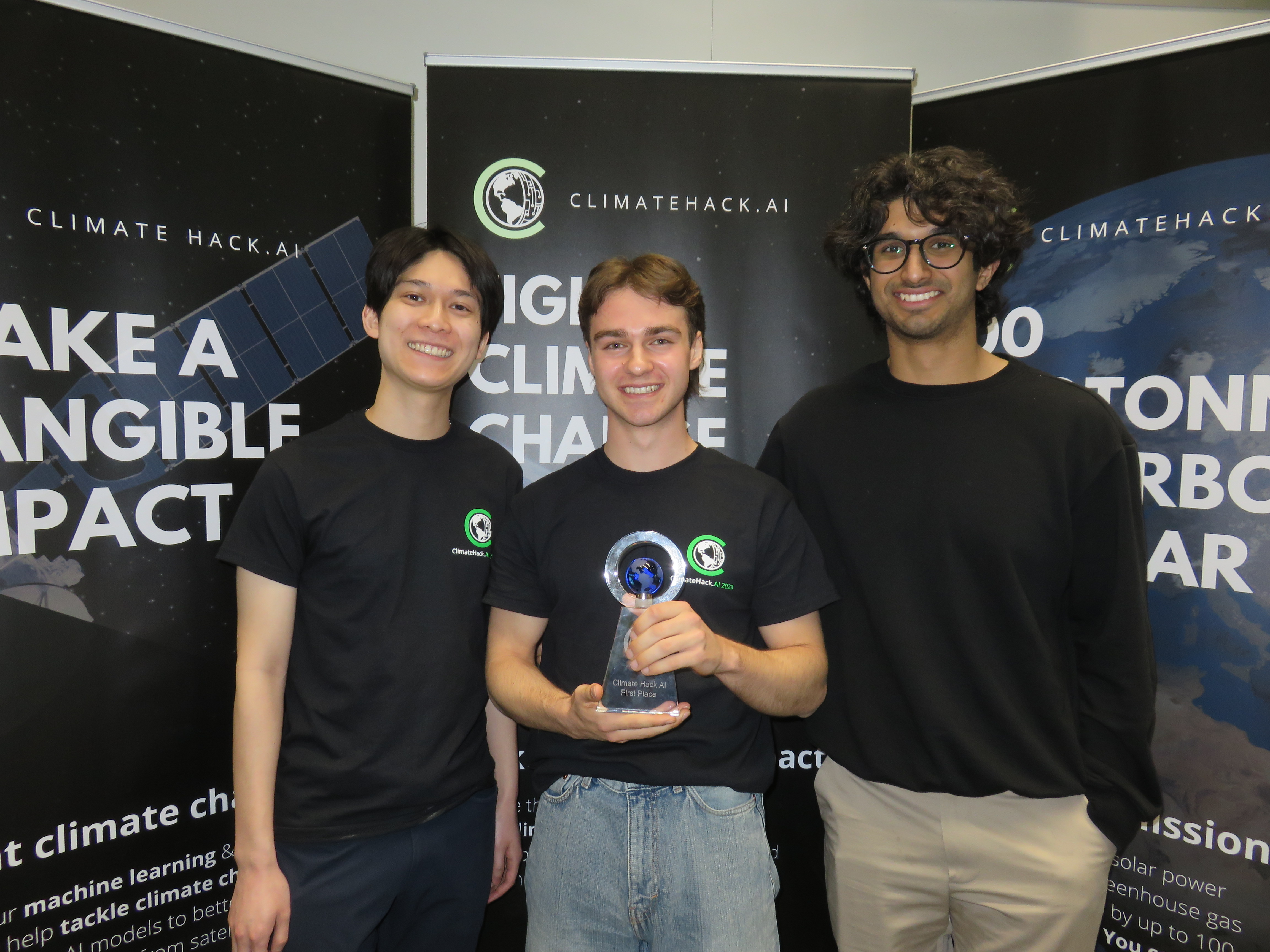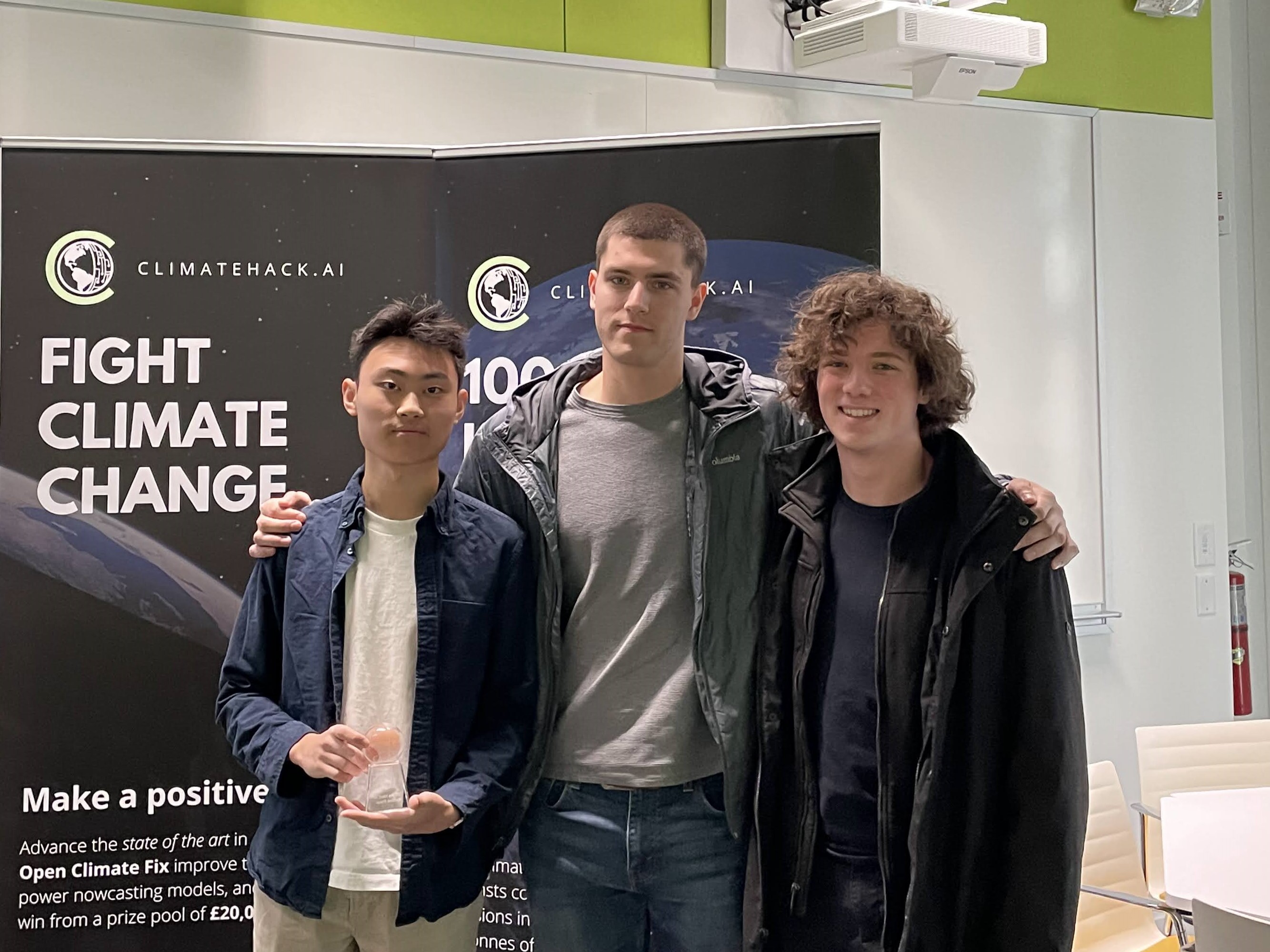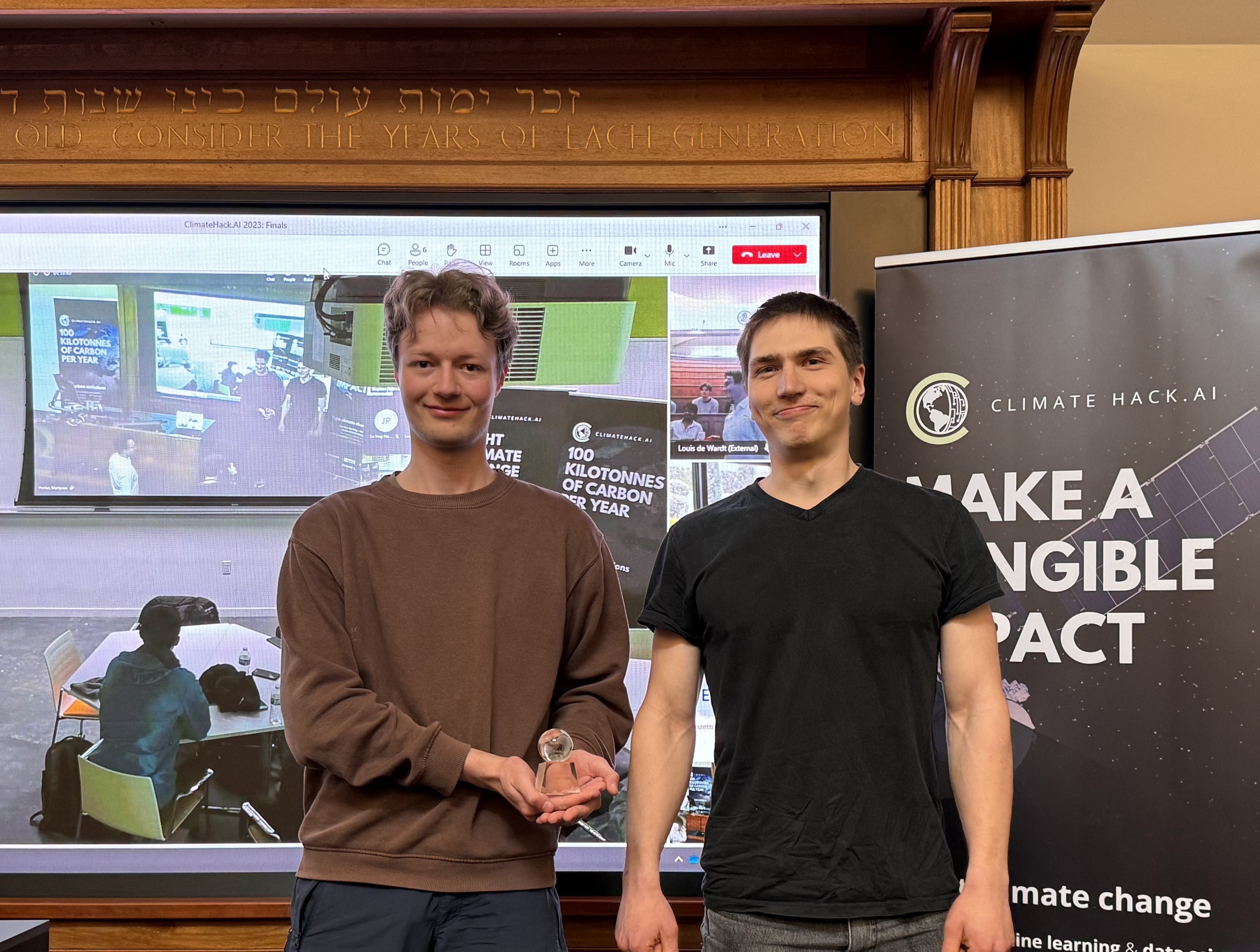
Following in-person finals held at University College London and Harvard University this weekend, ClimateHack.AI 2023–24 has just finished, and the winners can be announced! 🥳
On behalf of ClimateHack.AI, I would like to massively congratulate (i) Areel, Carter and Trevor from the University of Waterloo (Canada); (ii) Andrew, Grace, Tim and Val from the University of California, Berkeley (United States); and (iii) Tom and Michael from the University of Bristol (United Kingdom). 🏆
ClimateHack.AI 2023–24 launched on Monday 27th November 2023 with a challenge from Open Climate Fix to build accurate, efficient machine learning models for solar power forecasting using 600+ gigabytes of satellite imagery, numerical weather predictions and air quality data.
One month ago, the top three eligible participants from each university at the end of the qualifying round were invited to form a team and jointly present their work at our in-person competition finals to a panel of expert judges, who selected the winning teams.
Thanks to our supporters – Newcross Healthcare, University College London, PGIM Real Estate via their RealAssetX innovation lab, Open Climate Fix and Climate X – ClimateHack.AI was able to fund finalists' travel and accommodation for the event, ensuring that our top teams from universities in the UK, the US and Canada could meet in London and Boston.
All in all, 3,900+ machine learning models were submitted by participants to the DOXA AI platform for evaluation throughout the competition, surpassing the 2,200+ satellite imagery forecasting models submitted during ClimateHack.AI 2022.
Our winning teams will now share a prize pool of £20,000 (~£25,000), and their contributions – as well as those of our other finalists – will now feed into Open Climate Fix's open-source research to build better machine learning models for forecasting solar power generation.
They estimate that more accurate forecasts could allow grid operators to reduce greenhouse gas emissions by up to 100 kilotonnes of CO2e per year in Great Britain alone and on the order of 50 megatonnes per year worldwide by 2030.
You can find out more about the competition and machine learning challenge on the ClimateHack.AI website and the DOXA AI competition page, and if you would like to hear about future iterations of the competition, join the ClimateHack.AI Discord server.




